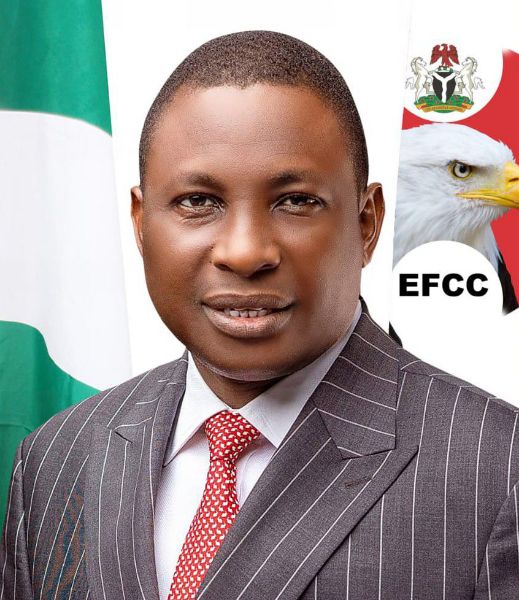Nigeria’s Economic and Financial Crimes Commission (EFCC) has issued a stern warning to Peoples Gazette, demanding a retraction of a report that alleged the Commission’s Chairman, Ola Olukoyede, played a central role in the forced resignation of Nigerian National Petroleum Company Limited (NNPCL) boss, Bayo Ojulari.
In a strongly worded statement released on Wednesday, the EFCC described the report as “sensational, baseless, and poorly sourced,” warning that legal action will be taken if the media outlet fails to retract the story and issue a public apology within 48 hours.
What the report alleged
The controversial publication claimed that Ojulari was taken to a secret location in Abuja, where EFCC Chairman Olukoyede and DSS Director-General Adeola Ajayi allegedly pressured him into signing a resignation letter. The story suggested that the move was part of a wider power play within Aso Rock, with backing from top government figures and alleged international interests.
ALSO READ Amid resignation rumours, NNPCL’s Ojulari charts bold vision for Africa’s energy transition
ALSO READ Clarify Ojulari’s status in NNPCL, AEF urges Tinubu
The report immediately stirred political and public anxiety, given the strategic importance of NNPCL and the timing—amid ongoing reforms in the oil and gas sector.
EFCC reacts: “Fake news, dangerous propaganda”
Reacting to the publication, EFCC insisted that no such coercion took place. The agency acknowledged receiving a petition concerning Ojulari, which is under preliminary assessment, but emphasized that neither detention nor intimidation occurred.
“The Commission wishes to state unequivocally that no such incident ever happened,” EFCC said. “This is a deliberate attempt to drag the name of the EFCC into an internal corporate matter. It is not only false but also a malicious fabrication designed to erode public confidence in our work.”
The Commission further expressed concern about the increasing use of online media platforms to disseminate falsehoods without regard to verification or professional standards.
Presidency backs Ojulari
The Presidency also stepped in to clear the air, confirming that Bayo Ojulari remains the substantive Group Chief Executive Officer of NNPCL. Presidential spokesperson Bayo Onanuga said the administration has full confidence in Ojulari’s leadership and urged the public to disregard resignation rumors.
This assurance came amid social media speculation and growing calls from civil society groups demanding accountability and clarification on NNPCL’s financial operations.
Background: Rising pressure on Ojulari
Ojulari has been under increasing scrutiny since civil society organizations accused him of mismanagement and complicity in an alleged $21 million kickback scheme related to procurement contracts. Another major accusation involved the failure of NNPCL to remit over ₦500 billion to the Federation Account.
The controversy sparked protests at various locations, including the National Assembly and EFCC headquarters, intensifying calls for a leadership shake-up at the national oil company.
Legal battle or retraction?
As tensions rise, all eyes are now on Peoples Gazette—whether it will comply with EFCC’s demand or risk a lawsuit. For the EFCC, the stakes are high in defending its leadership and institutional integrity. For media stakeholders, this clash raises critical questions about press freedom, ethics, and the limits of investigative reporting in Nigeria’s volatile political environment.
Whether this matter ends in court or fades through backdoor negotiations remains to be seen. One thing is certain: the Ojulari resignation saga has thrown another spotlight on the fragile intersection of politics, petroleum, and public accountability in Nigeria.


